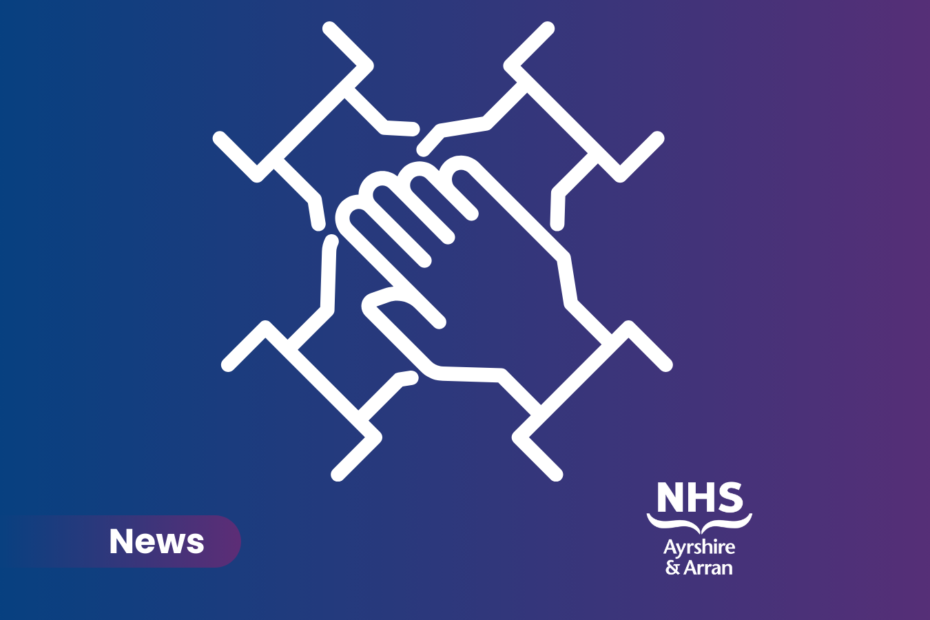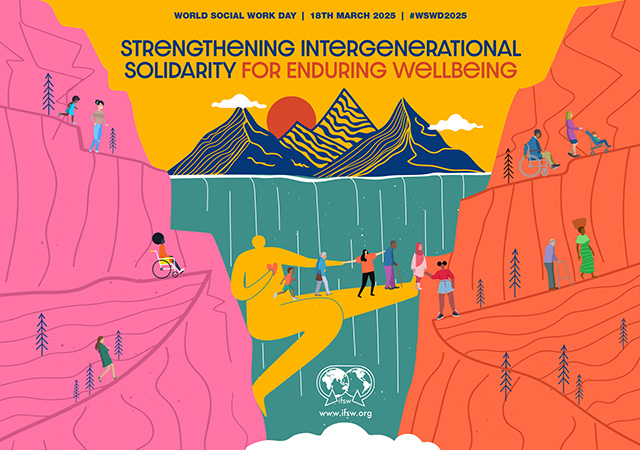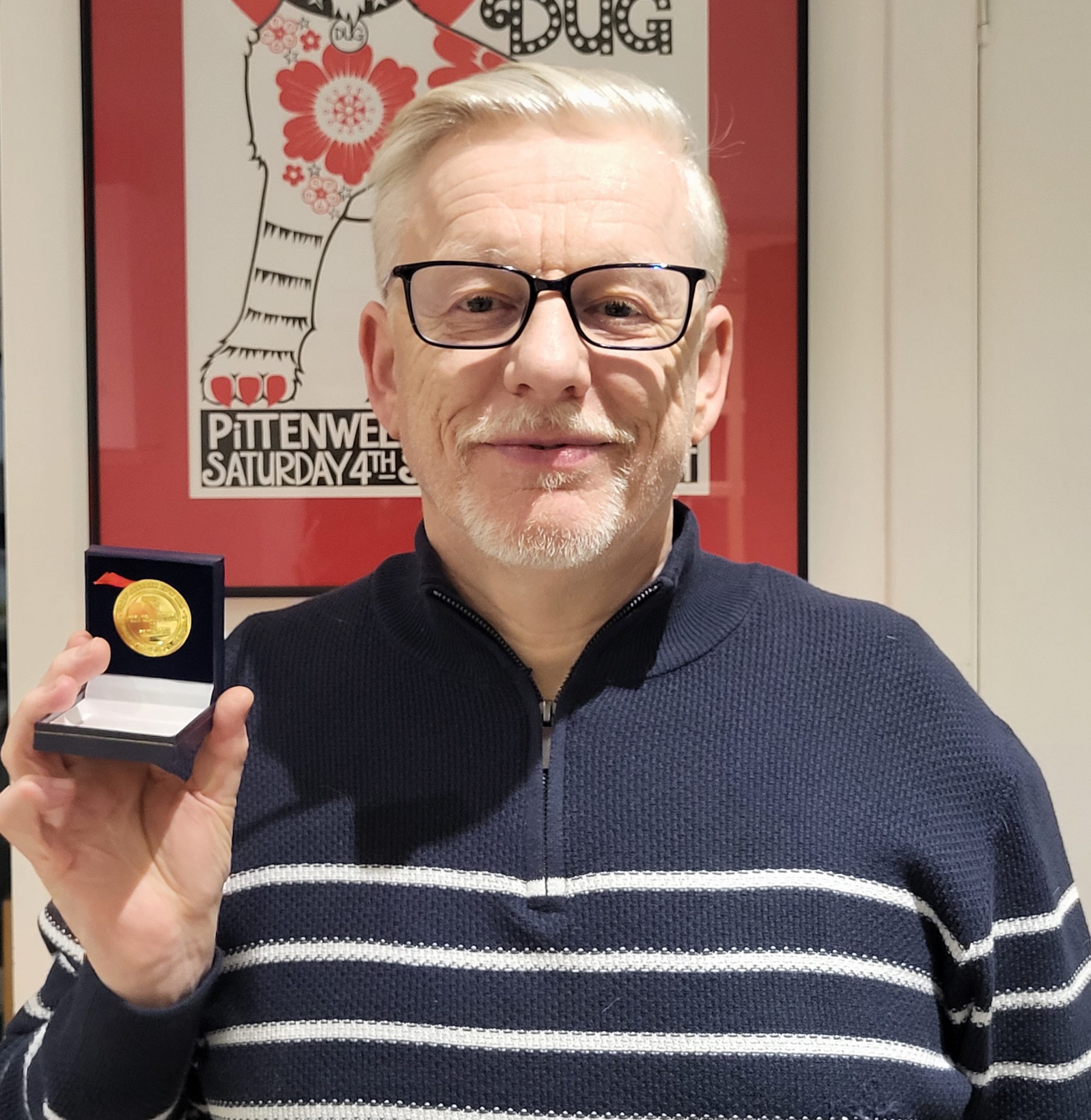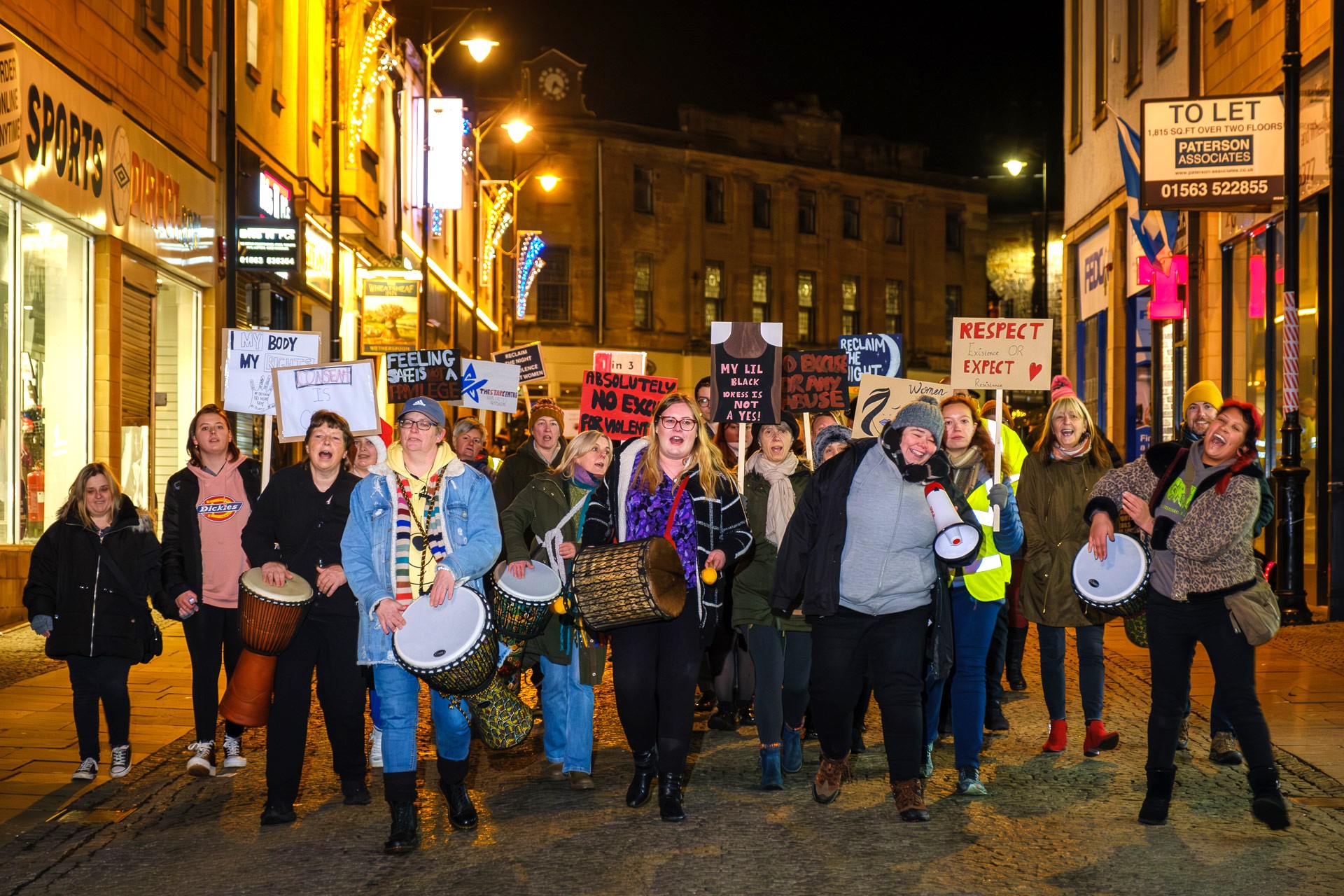
Key messages from 16 Days of Action 2023
From Friday 24 November to Sunday 10 December, we took part in 16 Days of Action, an online campaign to encourage meaningful conversations, share learning, signpost to support, and raise awareness of gender-based violence in all its forms.
Although our campaign for 2023 is over, we’re committed to speaking up for women and girls at every opportunity.
See below for a complete list of key messages from this year’s campaign and join us in tackling violence against women and girls in East Ayrshire, now and into the future.
Alcohol and drugs can be used to control women
As part of our 16 Days of Action campaign we highlighted how alcohol and drugs can play a role in domestic abuse.
Episode 2 of our East Ayrshire Recovery Podcast (EAR POD), shares one woman’s experience of alcohol dependency and how it was used as a way to control her.

The episode, ‘Call Me Liz’, delves into the complex issue of addiction within domestic abuse, highlighting parts of Liz’s story that might be familiar to others and the support available that helped her find a happier and safer life.
Please be advised that this episode contains references to violence, coercive control and alcohol and substance use.
If you ever need support for recovery, call RADAR (Rapid Access to Drug and Alcohol Recovery) on 01563 574237.
For domestic abuse call the national domestic abuse helpline on Freephone 0808 2000 247 (24hr).
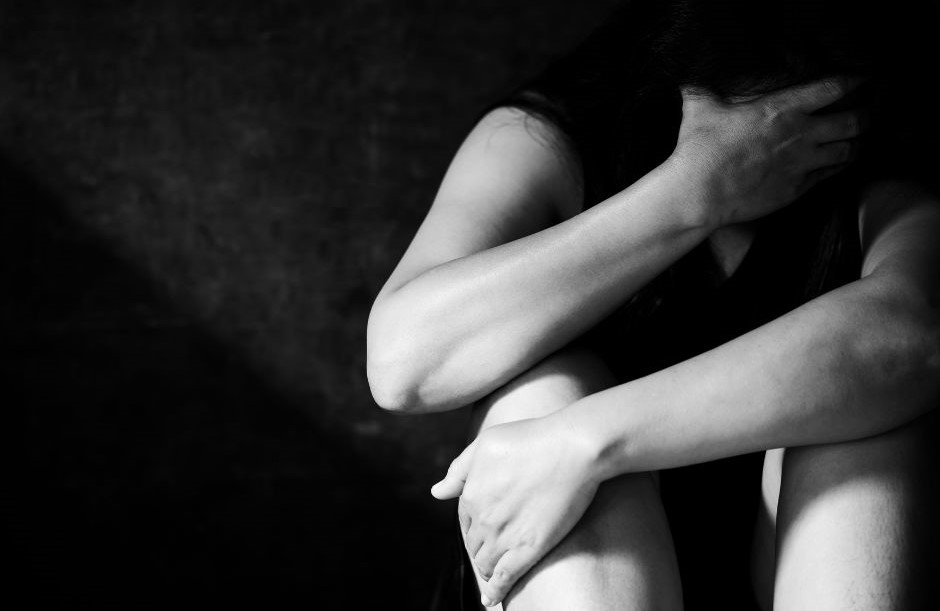
Domestic abuse usually affects women
Women and girls are disproportionately affected by domestic abuse, sexual violence and other forms of violence committed mainly by men.
In Scotland, at least four out of five incidents of domestic abuse recorded by police have a female victim and a male accused.
A gendered analysis helps to explain the prevalence of domestic abuse in society, and helps us to challenge the attitudes which contribute to gender-based violence.
Find more statistics about domestic abuse on the Scottish Government website.
You can also check out Police Scotland’s ‘That Guy’ campaign.
We renewed our support for The White Ribbon Pledge
A number of elected members and East Ayrshire Council and partnership staff signed the White Ribbon Pledge against gender-based violence.
Aimed at men who wish to show their support, signing the White Ribbon Pledge serves as their promise to never commit, condone or remain silent about violence against women in all its forms.
Find out more about the White Ribbon campaign and make your own pledge here.
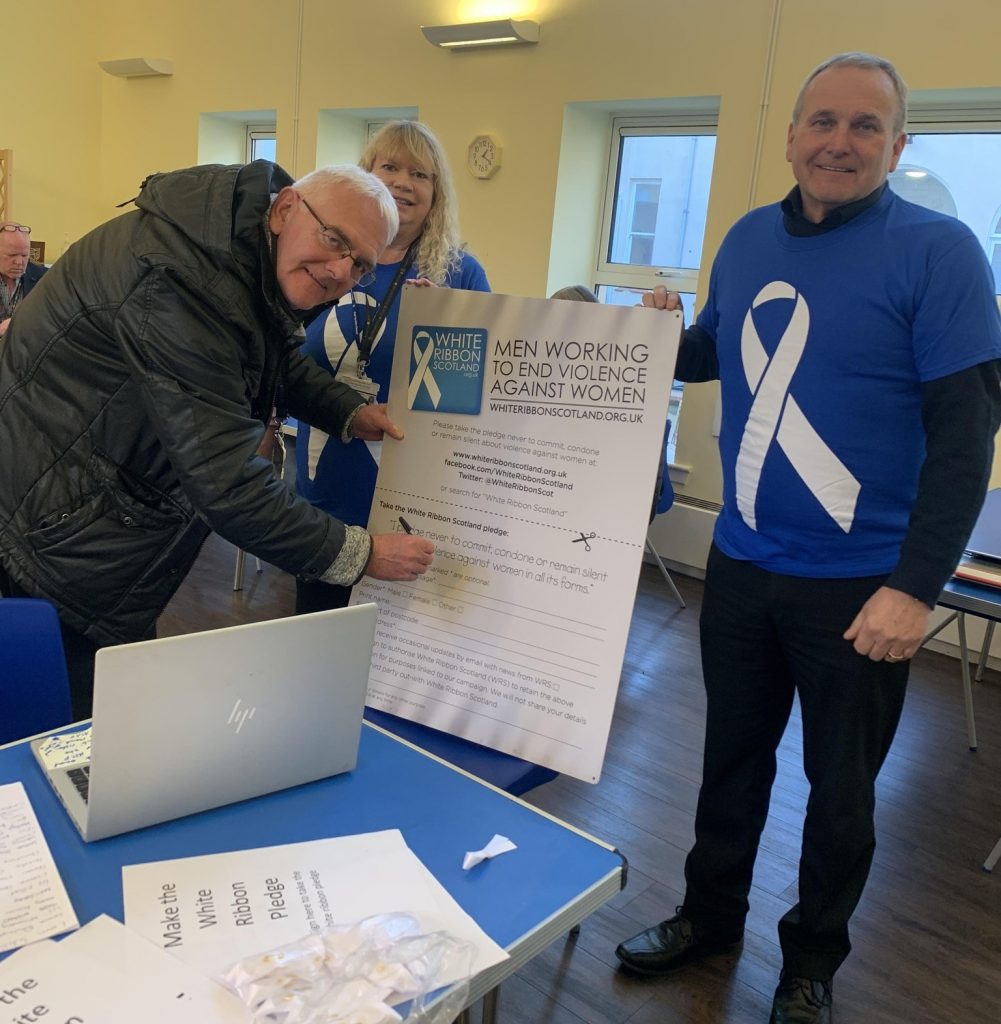
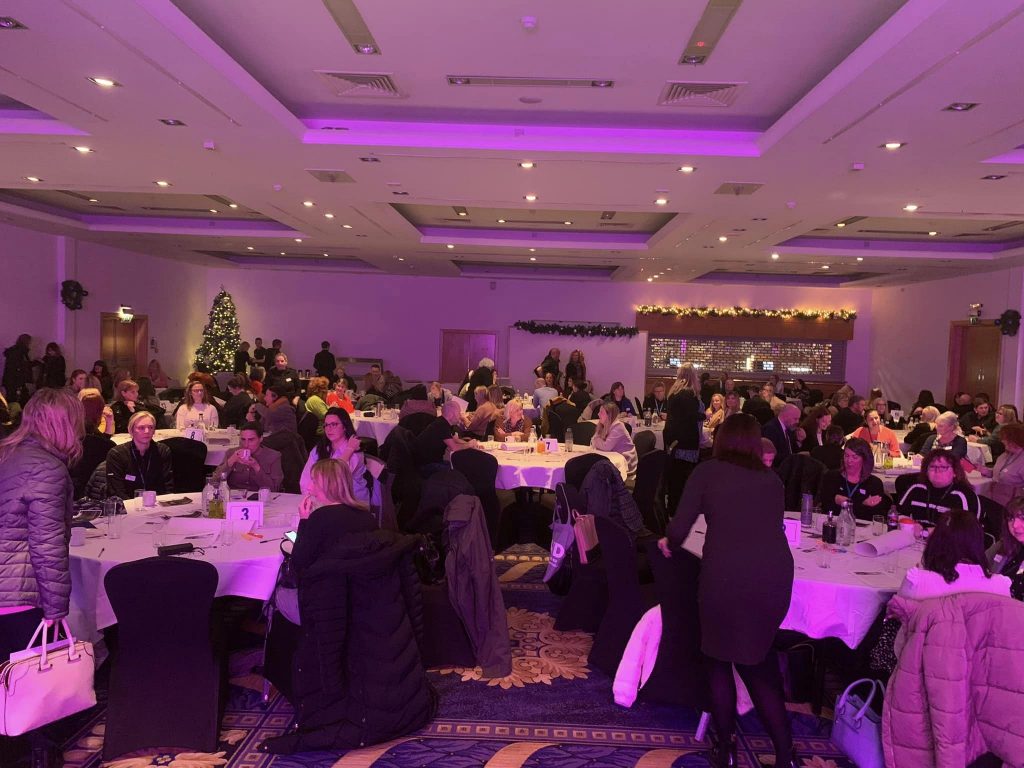
Our practitioner event shone a light on Commercial Sexual Exploitation
Our Violence Against Women Partnership held their pan-Ayrshire practitioner event on Commercial Sexual Exploitation (CSE) at the Park Hotel in Kilmarnock.
Led by Linda Thompson from the Women’s Support Project, the event was an opportunity to benefit from the work, research and training of the project, to hear the voices of women with lived experience and to learn from practitioners and academics.
Women are still underrepresented in the workplace
Despite women making up 51% of Scotland’s population, they are still underrepresented in management positions in local and national government.

According to feminist policy and advocacy organisation, Engender Scotland, men are overrepresented in all of Scotland’s democratic bodies, with multiple barriers to women accessing politics (particularly women of colour, disabled women and LGBTI+ women).
Engender also states that only 7% of women are currently CEOs of Scotland’s ‘top businesses’, only 11.8% are editors of major newspapers, and only 22.2% are directors of national arts and culture bodies.
Read Engender’s report, ‘Sex and Power in Scotland 2023’ to learn more.
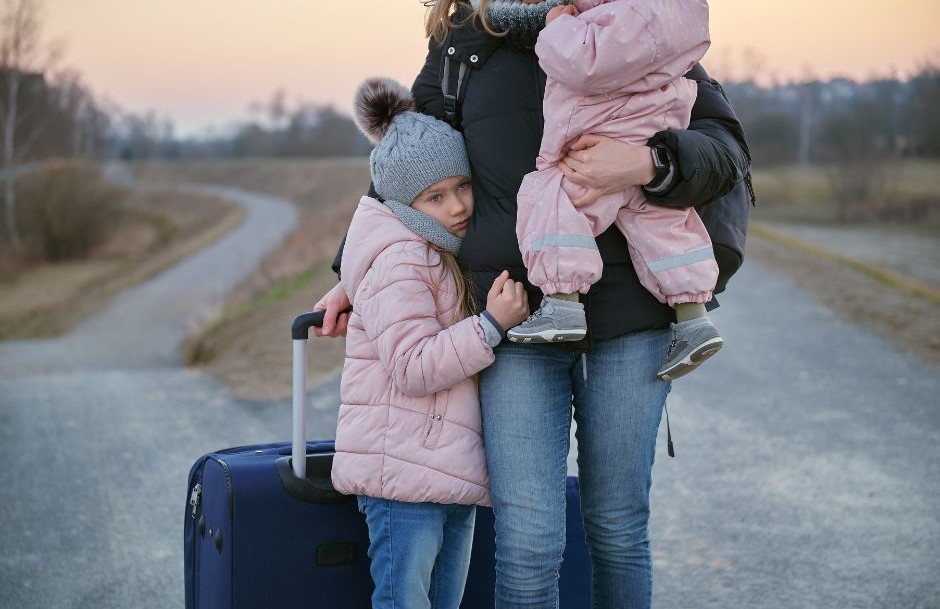
Women and girls fleeing crisis are more vulnerable
Women and girls fleeing crisis in their home countries are especially vulnerable to gender-based violence and are at high risk of being trafficked, sexually assaulted and raped.
A gendered approach is required to mitigate the heightened risks faced by women and girls fleeing crisis.
Find out more in Just Right Scotland’s report on Ukraine.
Women are disproportionately impacted by poverty
Children and young people experiencing gender-based violence can face barriers to accessing recovery support.
One of the reasons for this is that poverty disproportionately impacts women and children.
We need to take a children’s rights approach to tackling gender-based violence and ensure we are listening to the voices of children and young people.
Read more in the Improvement Service’s briefing note for elected members, ‘Children, young people and domestic abuse: impact, support and recovery’.
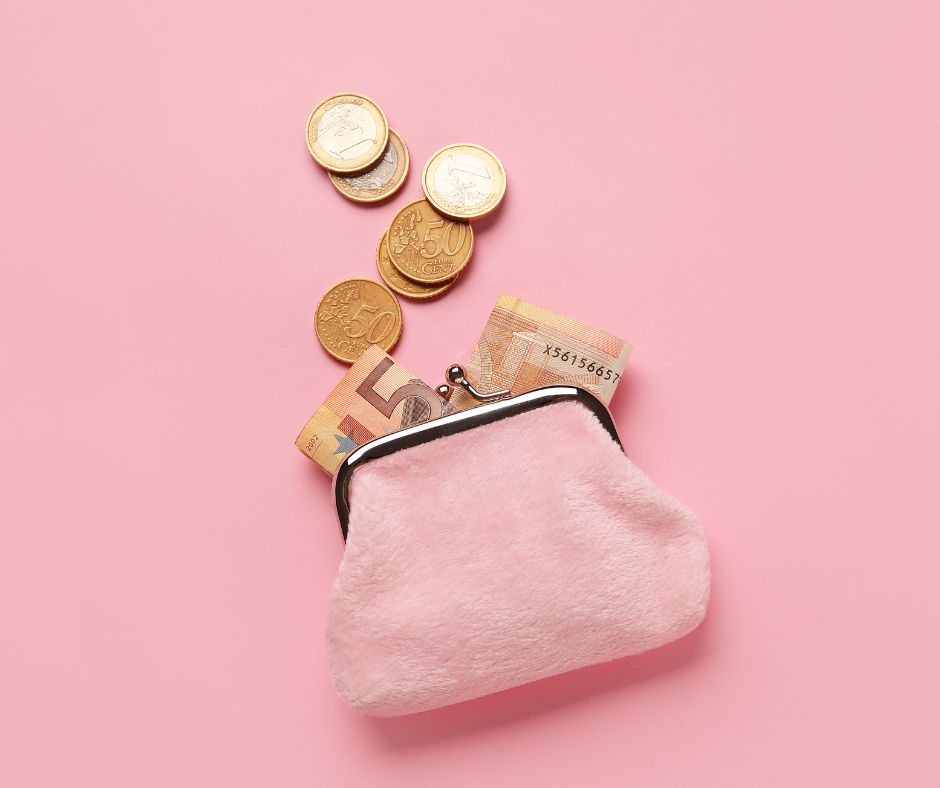
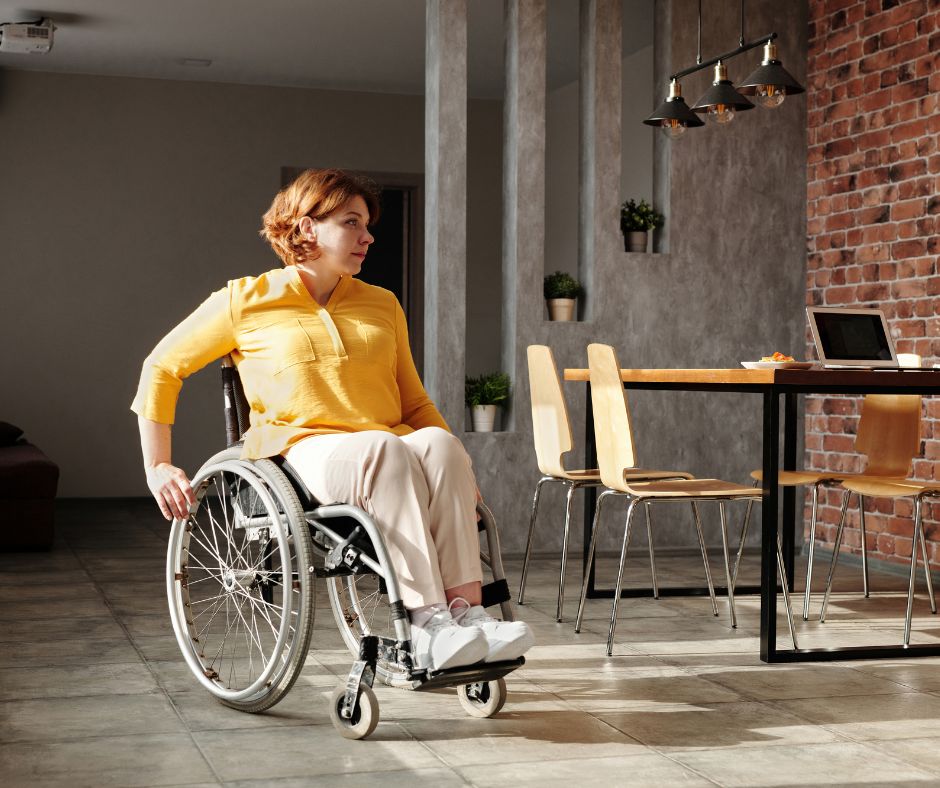
Women with a disability are at higher risk of domestic abuse
To mark the UN International Day of Persons with Disabilities, we shared some facts about women with disabilities and their risk of experiencing gender-based violence.
Disabled women face a disproportionate risk of experiencing domestic abuse and other forms of gender-based violence, and may find it more difficult to seek support due to additional barriers to accessing services.
Find out more in the Daisie Report by Wise Women Glasgow.
Women are more likely to feel unsafe in public places
Women and girls experience more barriers than men when using the public places around them, and are more likely to feel unsafe due to the risk of experiencing violence and harassment.
Women experiencing gender-based violence also face additional barriers to accessing support in remote and/or rural communities.
Joined-up working is needed to respond to the needs of women and children who are affected by violence and abuse in Scotland’s public spaces and communities.
Find out more on the Scottish Community Safety Network website.
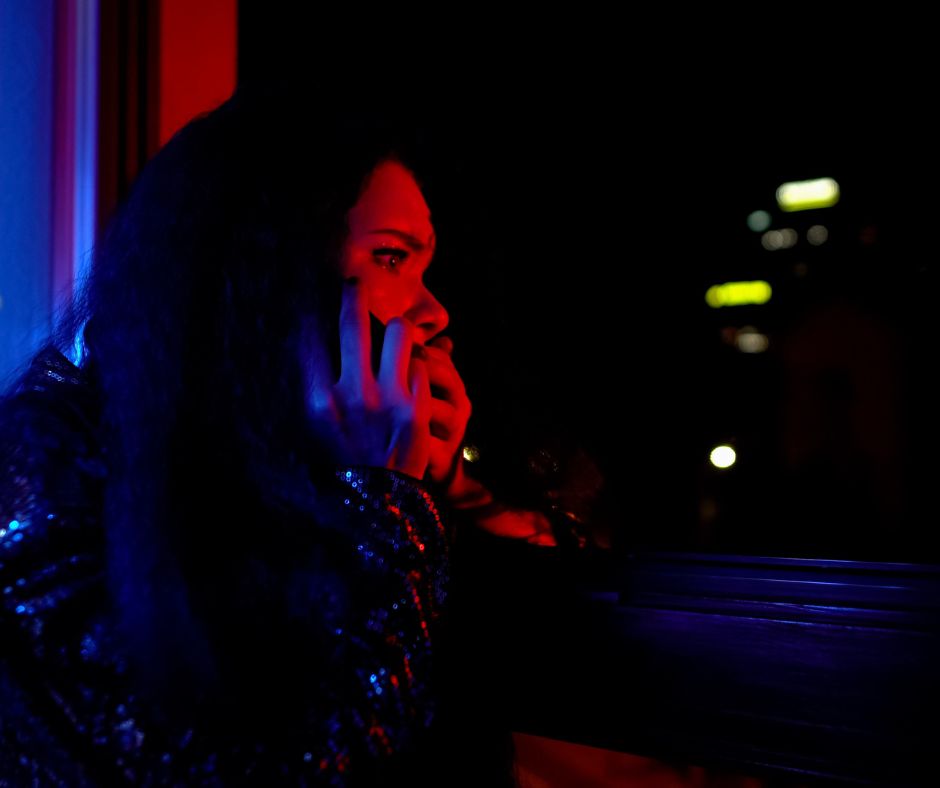

Women involved in prostitution face even greater risks
Women involved in prostitution are more likely to experience problems with their mental, physical and sexual health.
They are also more likely to experience physical and sexual assault, including rape.
To cope, many women in prostitution turn to drugs and alcohol.
Find out more on the CSE Aware website.
Minority ethnic women and girls face barriers to support
Lack of trauma-informed language, translation and interpretation services is a significant barrier for minority ethnic women and girls accessing advice and support for VAWG.
Women from minority ethnic communities can often feel judged, shamed and discriminated against due to staff in mainstream services lacking an understanding of their experiences and cultural practices.
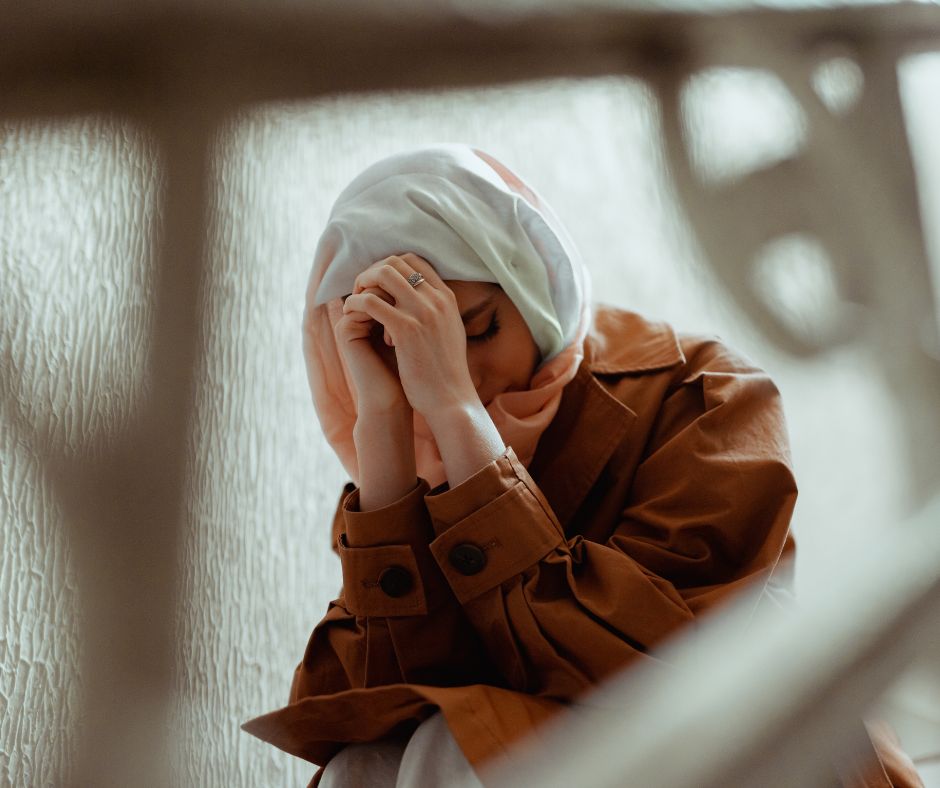
Where to find support…
Click on the links below if you or someone you know is in need of support, information or advice.
Information, support and refuge for women, children and young people who have experienced domestic abuse.
Offers free and confidential support to anyone, of any ethnicity, aged 13 and over who has experienced sexual violence (women, girls, boys and those who identify as transgender or non-binary).
Provides tailored, professional support for people affected by sexual trauma, aged 13 years and above, in East and North Ayrshire.
Offers free, confidential and non-judgemental practical and emotional support to women who sell sex.
